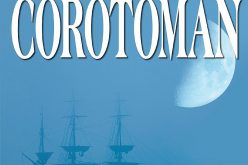Pedi-Can Or Pedi-Can't?
Fayetteville
City Council: April 5
Discussion continues on expanding reach of pedicabs;
city attorney fears ‘death of a thousand cuts’ on sign ordinance
By Richard Davis
TFW Staff Writer

(Staff Photos: Richard Davis) A blind curve on the Scull Creek Trail near Gordon Long Park in Fayetteville. Blind curves are one of the safety concerns being mentioned in the City Council's discussion of a proposal to allow pedicabs to operate on trails.
Pedicabs, taxicabs and sign ordinances, oh my!
Navigating the pedicab usage and advertising proposals wasn’t as simple as following a Yellow Brick Road on Tuesday night, but in the end the Fayetteville City Council arrived at the same destination for three amendments: Leave them on a second reading and come back to them next time.
Pedicabs: Roads & Trails
Council member Matthew “Pettycab” Petty’s first pedicab amendment has two major prongs. The first would let pedicabs operate on 35-plus mph roads if approved beforehand by the city transportation director. The thrust of this is to let the pedal-powered cabs carry people from their vehicles to the stadium on Razorback game days. Easy enough, and so far, no one’s complained about that.
Part two gets trickier. This would let pedicabs operate on parts of the city’s trail system, including Scull Creek, Mud Creek and the Frisco trails. There’s your debate point.

Trail user Wesley Owens said he's concerned about the width of pedicabs if they're allowed on the city's trails. He proposed seperating the issues of increasing pedicab use on streets and allowing on trails. He also indicated he might not be opposed to allowing pedicabs on the trails during lower traffic times at night, a move which has been suggested might actually increase safety for late hour users of the walkways.
Some residents have questioned the safety of allowing pedicabs to operate on trails, saying they could be a hazard around blind corners and places where the path becomes narrow. One speaker during public comment, Melissa Jackson, asked the council to keep the cabs off the trail, saying there’s not enough for them to be added to the mix of traffic.
Here’s a summary of some of the council members’ responses and thoughts regarding the pedicab proposal:
RHONDA ADAMS: She suggested leaving the part regarding pedicabs on streets alone but substituting the section on trails with one that would ban the vehicles from the paths except for special events and possibly nighttime hours by approval of the parks and recreation director. Essentially, this would leave regulation of pedicabs on trails up to city staff.
BRENDA THIEL: Although she’s heard from the public that pedicabs during the day are a concern, she thinks that the primary use for the vehicles would be at night when there’s not as much traffic. Thiel seemed open to allowing nighttime operating hours.
MARK KINION: He said there are safety concerns with blind corners, pedestrian traffic and comfort and child safety and so would like more discussion. On the other hand, he said pedicabs on the trails at night could bolster safety by having increased regular traffic on the paths.
“PETTYCAB”: Petty asked the council to vote down Adams’ amendment to the amendment and give him time to work with her on creating a complete solution. He said he thinks the council is spending too much time debating the specifics of something that will have little real world impact, since the number of pedicabs are so few and they’d mostly be used on trails at night.
During public comment, Jason Sexton again represented his Fayetteville Pedicab Co. He pointed out that while mountain bikes can hit speeds of 20-30 mph, his vehicles max out at 5, calling the cabs “very slow and very visible.” He also mentioned his drivers are trained and then vetted by the police department before being allowed to operate.
Wesley Owens said he uses the city’s trails two or three times each week and had concerns about anything the width of a pedicab on the trail, though he said he thought nighttime use was completely different and would enhance safety. He suggested the council split the issue of the cabs being allowed on streets and trails.
Don Marr, the mayor’s chief of staff, distributed a map to the council of five areas that are a concern for safety due to width on the trails, meaning pedicabs would not be allowed on those sections. He also suggested adding a requirement for an audible signal on the vehicles to use as an alert at blind corners.
In the end, both the amendment and the amendment to the amendment were tabled, leaving the proposal at a second reading.
Signs and Advertising
Two more proposals went in completely opposite directions.
A second pedicab proposal by Petty would allow small ads on the back of the vehicles. However, council member Sarah Lewis wants to revoke the exception in the city’s sign ordinance that allows ads on taxicabs.
Fayetteville’s sign ordinance is one of the things that keeps the city from looking like it’s been beaten with a billboard ugly stick. For a counterexample, just check out Springdale with its massive, towering advertisements and explosively colored, moving display screens in front of businesses.
Lewis said residents in her ward have often asked her to make sure the city’s sign ordinance stays strong. She said the strength of the ordinance lies in its off-site regulations, which currently allows two exceptions: one for buses to carry advertising and one for taxis.
Kit Williams, city attorney, said “off- site” is advertising a business that’s not your own. It’s fine for a Tyson Foods truck to carry the company logo or a landscaping truck to be painted in the business’ colors, but the ordinance won’t allow you to slap a Pizza Hut banner on the side of a Walmart tractor trailer. Williams likened exceptions to the sign ordinance as “death by a thousand cuts.” He said each alteration makes the ordinance harder to defend if someone chose to sue the city over its signage regulations.
Petty questioned why the exemption for buses was being left alone yet the taxicab exemption would be removed. He said he wouldn’t vote for or support Lewis’ proposal, saying he thinks the treatment needs to be more consistent.
Jason Sexton just asked the council to be even across the board with allowing advertising, saying he didn’t understand allowing an exception for buses but not taxis and pedis.
While he would rather have no exemptions, Williams said he would prefer to defend one exception in court as opposed to three.
More discussion is probable at the next council meeting, but action will likely be taken for the third and final readings of the proposals.
Fayetteville City Council: April 5, 2011, meeting video







